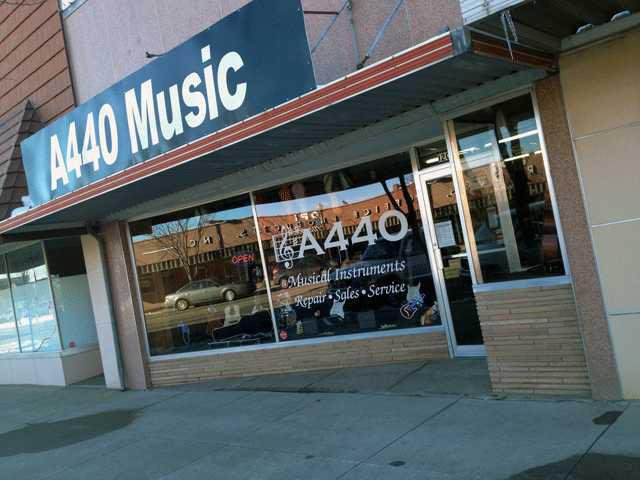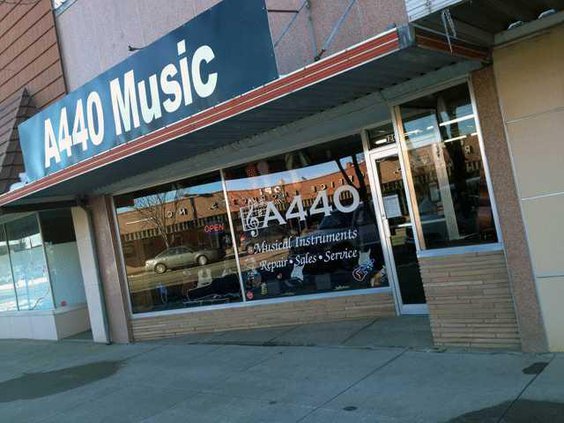For 10 years, the Prairie Enterprise Project has been offering free and confidential business coaching to entrepreneurs in Barton, Russell, and Edwards counties. Karmi Green, the non-profit organization’s Enterprise Facilitator, has helped business start-ups get off to a good start and helped tweak existing businesses, bringing and helping to retain jobs and tax dollars to the towns and counties where they locate. Sadly, unless it can secure new funding, the project will have no choice but to close its doors. That’s especially bad news at a time when many in the Golden Belt area are experiencing unemployment for longer periods of time.
In 2003, the project started with a $200,000 State Department of Commerce grant, Green said. Since then, funding for the Prairie Enterprise Project has come from fees paid by participating municipalities, and from the sale of state tax credits by the certified development company Great Plains Development in Dodge City. Kansas Governor Sam Brownback eliminated the sale of these credits in order to make it possible to eliminate unearned income tax, part of his plan to stimulate the economy.
This takes a giant bite out of the already shoe-string budget Green operates with and has caused member municipalities to wonder if more will now be asked of them to keep the program going. Vicki Dayton, a board member, says that is highly unlikely, as cities and counties are already trying to hold the mark or shave their own budgets.
“The Prairie Enterprise Project is a rare jewel,” six-year board member Vicki Dayton said. “It pains me to have to discuss the possibility of having to close it, which we will have to do if we are unable to recoup this funding.”
How it works
The Prairie Enterprise Project is a confidential, free of charge service that helps would-be business owners formulate a solid business plan and connects them with the resources they need to get their business off the ground. Green, with over 30 years of banking experience, coaches them on how to package their plan to appeal to potential lenders.
Most of Green’s clients come to her with a business concept that needs fleshing out. She first helps them to define why they want to start a business, and then helps them work through a “back of the envelope business plan”. The first few questions about the business, the customers, the product and the advertising help get the client started.
“When I ask them to tell me what their typical day looks like, that’s when I usually get the “deer in the headlights” look,” she said.
She walks them through the day, from arriving at work to turning the lights off and heading for home. The process helps people to start making lists of everything they’ll need to make the business a success, Green said. They realize they’ll need a location, heat, electricity, telephone, computer, inventory, employees, etc.
Often people don’t think of the ordinary things, like utilities and office equipment at the beginning, Green said. It all adds up.
She helps them in three areas: determining a product or service they can build a business around, the marketing of the business, and the financial management of the business. The financials not only include the daily bookkeeping, but taxes and projections too. As she helps them break down the financials and the day-to-day details of operating a potential business, some learn the idea requires more investment of time or money than they realized to get the business off the ground, or the return is not what they thought it would be.
“Mistakes can be catastrophic,” Dayton said. “Some people believe in their ideas so much, they take out loans and second mortgages on their homes without following through on a solid business plan. They may lose a lot of money and face years of pain and anguish.”
Sheryl Cheeley is a long-time Prairie Enterprise board member. She was with the original board who worked to get grant funding from the State Department of Commerce to get the project off the ground in 2003. She’s passionate about working to help improve the lifestyle of Great Bend. She went through the original training and knows the stories of the hundreds of clients the project has helped over the last decade.
“A lot of people think it sounds wonderful to go into business for themselves,” Cheely said.
The project has helped educate people, saving them from spending life savings and not having anything left and having to start all over. Most businesses, 80 percent, fail in the first year without this kind of guidance.
“It’s been a great asset for the community. It’s helped to get many small businesses up and running and has helped save a lot of cash over the past decade.”
While there are other options, Cheely admits, none are as all-encompassing and focused on the area as Prairie Enterprise.
“People can go to the Small Business Administration, or to the Small Business Development Corporation office in Hays, but they’ll compete for the attention of one person serving all of Western Kansas,” Cheely said. “These counselors can help them with a business plan, but they don’t have the time to guide them through the whole process.”
Green not only offers assistance with creating a business plan, she also helps connect clients with resources that can help with location, financing, and taxes.
“It would be a shame to let all the accumulated experience and network Karmi has worked to build over the last decade simply go away,” Cheely said.
Business by the numbers
In 10 years, 592 clients have been seen, Green said. That may not sound like a lot, until you take into consideration, of all the towns served by the project, Great Bend and Russell are the largest. Barton County accounts for 58 percent of the total number of clients served. Retail and service businesses are the largest industry representations, followed in the distance by hospitality, manufacturing and agricultural businesses. There have been 116 new businesses started, 19 expanded and four retained among the project’s clients. In all, 358 jobs have been created, and 31 have been retained for a total of 389 jobs that may not have existed without help from the Prairie Enterprise Project.
While many businesses have been started, of equal importance are the ones that were shelved because the would be owners learned they would not be viable thanks to the guidance and networking available at the Prairie Enterprise Project. In the past 10 years, 57 people have put their business ideas on hold, and 311 clients ultimately decided not to move forward with an idea.
“People have dreams, and I’m not here to crush them,” Green said. “I’m here to help them, and if someone can make a living doing something they love to do, I’m all for it.”
In an average month, Green said she takes on one or two new clients, but in December, five new clients from Barton County have approached her for assistance in getting a business started. This is in part because they have not been able to find a job after an extended period of unemployment. She cites long periods of unemployment as a prime motivator for self job creation. This is what keeps volunteer board members like Dayton energized to keep working on a way to keep the project alive.
“This is the time it is most crucial,” Dayton said. “In a downward economy the need for employment triggers innovations. We desperately need to retain this sort of organization. Where else are people going to go where for free, they can get the connections and help they need to get these ideas off the ground?” Few people are equipped to do it by themselves, and may find it too difficult to get started, or may not make it when they deserve to without the help available from the Prairie Enterprise Project, she added. “The community as a whole could end up the big loser if it goes away.”
Unemployment data from the Federal Reserve Economic Data (FRED) indicates unemployment has dropped to a low of 3.6 percent in Barton County from 5 percent nearly a year ago. It hit its peak at 6.8 percent in the second half of 2009 after the official US recession. But that doesn’t mean people are finally finding work again. For many, they’ve simply become old enough to finally be able to access Social Security and retirement savings without penalties. Others have taken hits to their earning power, work more than one part-time job and remain without benefits, and still others have moved away to find work elsewhere, Green said.
The Labor Department reports nationwide, while 149,000 jobs were created in November, while 355,000 people dropped out of the labor force. It estimates 150,000 jobs need to be created monthly simply to keep up with population growth throughout the country.
Volunteer board members needed
In addition to a need for new funding, PEP needs an injection of new ideas and passion that can only come from fresh board members.
The board has ranged in size from a high of 15 to its present five members. Like most new boards, early on there was a great deal of enthusiasm for the project, but now the newness has worn off, and several board members have left due to retirement, moving, and life changes, Dayton said.
“We need a shot in the arm,” she said.
Board members do not need to have any specific credentials. They don’t need to be business owners either. The board meet monthly on the second Thursday at 4 p.m. at the Prairie Enterprise office in the Zarah mall located on the corner of Lakin Ave. and Main St., south of the Jack Kilby Square. Those interested should contact Karmi Green, Enterprise Facilitator 1320 Cleveland Street, Great Bend, Kansas 67530, (620)-617-1555, E-mail: pep1@ruraltel.net
Cuts threaten to close doors on business coaching program





